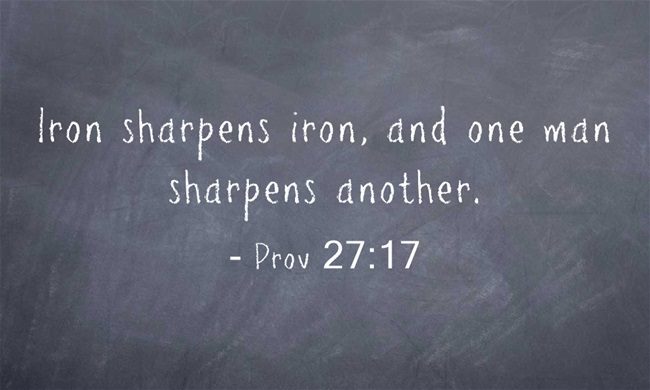How can you study for a Bible test?
Read, Write, Highlight
When a person reads a book, they only retain a small portion of what they’ve read, at least for most of us, but when you read a book and find a very significant point, you can highlight it in yellow like I do because I buy the books. If you want to avoid marking the book up with highlights, you can always write down certain quotes out of a book and keep them in a notebook, along with the page number of the book you were reading at the time. In this way you can skim through your notes and the yellow highlighted portions of the book that you see as important to the fulfillment of the syllabus course work or written assignments. If you’re turning in a paper, you need to make sure you cite your sources with page numbers in the bibliography.
Read the Assigned Chapters
There was a boy who was praying after his test and his friend came up and asked him what he was praying about and he said he was praying that God could make Louisville the capital of Tennessee and not Nashville. His friend asked him, “Didn’t you study like the teacher told us to?” There was nothing but silence. One way to prepare for a Bible test is either read that book, chapter, subject or whatever the test is over, and be prepared to give an answer…lots of them…and hopefully correct ones. Nothing takes the place of doing assigned work up to the point of taking the test and neither does it replace old fashioned reading assignments.
A Study Buddy
The Apostle Paul told Timothy, “Do your best to present yourself to God as one approved, a worker who has no need to be ashamed, rightly handling the word of truth” (2nd Tim 2:15), but if you’ve got another “worker” with you, two are better than one (Eccl 4:9). The friend that you study with might see something that you don’t see or something you might have missed, but you also can help him or her by your doing the very same for them. The proverb, “Iron sharpens iron, and one man sharpens another” (Prov 27:17) is certainly true when you are studying together with someone for the same thing, like a Bible test.
Create an Outline
Creating an outline seems to be a great way to organize information. It can sometimes look like a speech outline might look like on paper. You can have headings and subheadings with the most important facts/factors for each assignment or chapter that you can look back on when you take on test for this course or your final exam. Near the end of the year, you’d have a sufficient study guide you could review to see what might be covered on the final which can be hardest because you have to know what you’ve been taught all year. With an outline and your notebook from your readings, you’re better prepared to take the Bible test when that time comes.
Covering a Subject
If your Bible exam is over the Gospel of John, then you can outline the book, using a notebook. When you read the gospel, write down certain key passages that have deeper meaning or highlight them in yellow (or another color). Jesus’ statement to the Samaritan woman at the well was that God seeks those who will worship Him in truth and spirit (John 4:24). Ask these questions about a certain subject; who, what, when, where, why, and how…and even why not? Aren’t the “who” also us who must worship God in spirit and in truth? What were the Samaritans worship of God like? When did Jesus come to know about this woman’s real life? Why did Jesus insist that “he must go” to Samaria? Was it for the purpose of meeting this woman at the well? Asking questions like; who, what, when, where, why, and, how can unpack a lot of things in your studies and these are the things that the test is probably going to be covering.
Rest and Eat
When you’re hungry, your brain is basically starving for energy and you’re likely to start yawning before you’re half way through the test, so the night before make sure you get a good night’s sleep and eat something before you take the test; even if you normally don’t do that. A hungry and tired student makes what is already hard, even harder. When you’re tired, it’s harder to focus and tests are not created to give you time to “focus.”
Conclusion
It wouldn’t hurt to ask the teacher what the main points will be on the test. He or she can only say no…but they might say yes because they see you as being diligent enough to even ask about it. If your teacher is silent, then all you can do is cover the different applications above and start off the day with a good breakfast and an good night’s sleep and after having review your outlines and notebooks, you should do well enough to pass.
Article by Jack Wellman
Jack Wellman is Pastor of the Mulvane Brethren Church in Mulvane Kansas. Jack is also the Senior Writer at What Christians Want To Know whose mission is to equip, encourage, and energize Christians and to address questions about the believer’s daily walk with God and the Bible. You can follow Jack on Google Plus or check out his book Teaching Children the Gospel available on Amazon.












